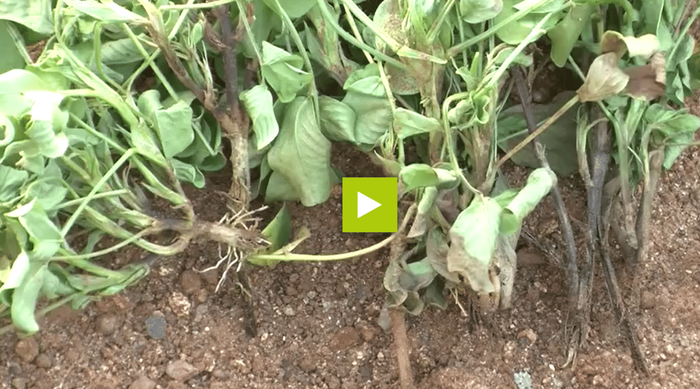Root and stem rot disease greatly affect ground nuts and reduce yields. Stem rot is spread by air, irrigation water while stagnant water spreads both.
Early diagnosis, ensuring proper control and preventive measures results into good yields. Ground nuts are widely grown for edible oil, cattle and poultry feed, organic fertilizers and increase soil fertility by fixing nitrogen.
Signs of root and stem rot: Plants are dry and wilt with rotten smelling roots. It occurs 30 days after sowing. Disease is caused by a fungus that lives in the soil.
Control and prevention
First plough soil deeply to expose the fungus to the sun and plant on raised beds (15 cm high) for proper drainage. Second, use beneficial fungi for more nutrient absorption and weed plants to trap more sun and air.
Additionally uproot, burn infected plants to prevent disease spread and spray marigold extract to protect the plant against the disease. Conclusively use powdered gypsum to control stem rot and ensure crop rotation to break disease life cycle.



















